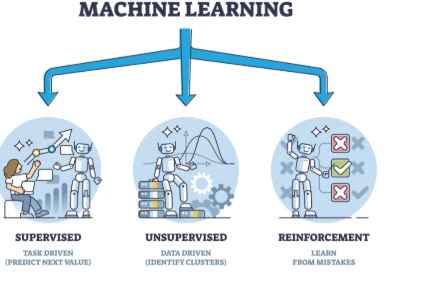In today’s fast-paced, technology-driven world, digital transformation has become a critical priority for businesses across all industries. It’s no longer a buzzword or an optional strategy—it’s a necessity for survival and success in a competitive global market. Digital transformation involves integrating digital technologies into all aspects of a business, fundamentally changing how it operates and delivers value to customers.
What is Digital Transformation?
Digital transformation refers to the process of using digital technologies to create new—or modify existing—business processes, culture, and customer experiences to meet changing business and market requirements. It goes beyond simply adopting new technologies; it involves a cultural shift that requires organizations to continually challenge the status quo, experiment, and adapt to evolving trends.
The core aim of digital transformation is to improve efficiency, enhance customer satisfaction, and foster innovation. It can include a wide range of initiatives, such as automating workflows, migrating to cloud platforms, using data analytics to drive decision-making, or implementing artificial intelligence (AI) to enhance customer service.
Key Drivers of Digital Transformation
Several factors are pushing organizations toward digital transformation:
- Changing Customer Expectations: Today’s customers demand faster, more personalized, and seamless experiences across all digital channels. Businesses must evolve to meet these expectations or risk becoming obsolete.
- Technological Advancements: Rapid progress in areas like AI, machine learning, cloud computing, and IoT (Internet of Things) has made it easier—and more necessary—for companies to adopt new technologies.
- Competitive Pressure: In many industries, digital-first companies are disrupting traditional business models. To stay relevant, legacy businesses must adapt or risk falling behind.
- Remote Work and Flexibility: The COVID-19 pandemic accelerated the shift to remote work, highlighting the need for cloud-based tools and digital collaboration platforms.
Benefits of Digital Transformation
Organizations that embrace digital transformation often experience significant benefits, such as:
- Increased Efficiency: Automation and improved workflows streamline operations, reduce manual errors, and lower operational costs.
- Better Decision-Making: Real-time data analytics provide valuable insights that guide strategic decisions.
- Enhanced Customer Experience: Personalized and responsive customer service boosts satisfaction and loyalty.
- Improved Agility: Digitally mature organizations can respond quickly to market changes, customer demands, and new opportunities.
- Innovation and Growth: A digital mindset fosters innovation and creates new revenue streams through digital products and services.
Challenges in Digital Transformation
Despite its benefits, digital transformation comes with challenges. One of the biggest hurdles is resistance to change. Employees and leaders accustomed to traditional processes may be reluctant to adopt new ways of working. Additionally, digital transformation requires significant investment—in both technology and talent.
Security and data privacy are also major concerns. As companies digitize their operations, they become more vulnerable to cyberattacks and data breaches. Ensuring robust cybersecurity is essential throughout the transformation journey.
Lastly, digital transformation is not a one-time project—it’s an ongoing process. Businesses must continuously evolve, experiment, and adapt to new technologies and market dynamics.
The Future of Digital Transformation
The future of digital transformation lies in intelligent automation, hyper-personalization, AI integration, and sustainable technology. As technologies evolve, so too will customer expectations, and businesses must be ready to innovate continuously. Emerging technologies like quantum computing, digital twins, and Web3 will further reshape industries and create new opportunities.
For organizations to thrive, digital transformation must be part of their core strategy. It’s not just about adopting tools; it’s about building a culture that embraces innovation, agility, and continuous learning.
Conclusion
Digital transformation is more than a technological shift—it’s a fundamental change in how businesses operate and deliver value. Embracing digital transformation is no longer optional; it’s a strategic imperative. Companies that invest in the right technologies, empower their people, and adapt their cultures will be better positioned to succeed in the digital age.



